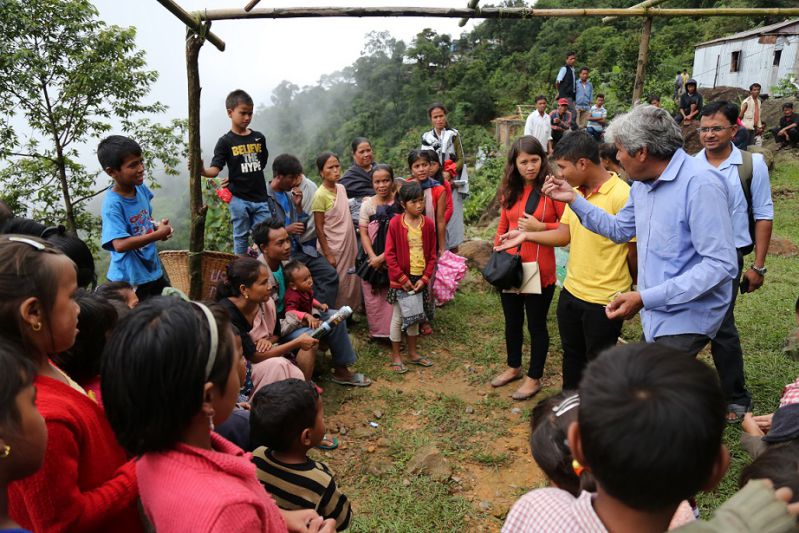
For effective lesson-learning from all the initiatives that are carried out under the IBDLP Programme and the statewide projects under it such as Megha-LAMP, it is essential to ensure knowledge transfer and communication between community partners on the one hand, and government representatives and IBDLP personnel on the other. “Lesson learning” - a key Knowledge Management activity – has been planned through documenting stories of both success and failure in the field, photographs and video clips documenting ground realities, and direct engagement with community partners to understand their needs, demands, challenges and aspirations surrounding their vision for entrepreneurship and village development.
Toward this collective knowledge creation and sharing, the Knowledge Management Unit of MBDA is conducting a series of village level immersions, dialogues and media events to facilitate engagement and collaborative action between IBDLP representatives, local government officials, civil society organisations, private sector and technical resource persons, senior media representatives, rural entrepreneurs, and community partners.
Each village or village cluster-level event is expected to generate substantial knowledge about opportunities for local development, allow the participants and community members to come up with an action plan for going forward, and generate media coverage for widespread public awareness on the vision, aspirations and stories of rural communities across Meghalaya. Each such event is also expected to be tailored to the specific socioeconomic context of the focal village or village cluster so that dialogue is meaningful and can result in some concrete action.
At Mawkaphan, the community dialogue, held on 9th June, 2016, centred around the integration of traditional knowledge and innovative thinking for community development. Mawkaphan is located in a geographic cluster with a number of villages that are engaged in innovative handicrafts using bamboo and cane, as a livelihood activity.
The dialogue focused on knowledge sharing by resource persons both from within and outside the state, identification of grassroot innovations and traditional knowledge, and documentation and application of the knowledge to create opportunities or to overcome common challenges faced by villages in the state. Participants included the Headmen, Secretaries, village elders, women, youth and other community members from the villages of Mawkaphan, Kenbah, Domskong, Jympiat and Kenmynsaw. Resource persons included senior representatives from the National Innovation Foundation, community innovators from Haryana, Karnataka and Bihar, ecology and sustainability expert, Senior expert in communications and photography, and social workers.